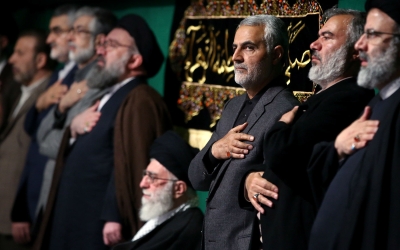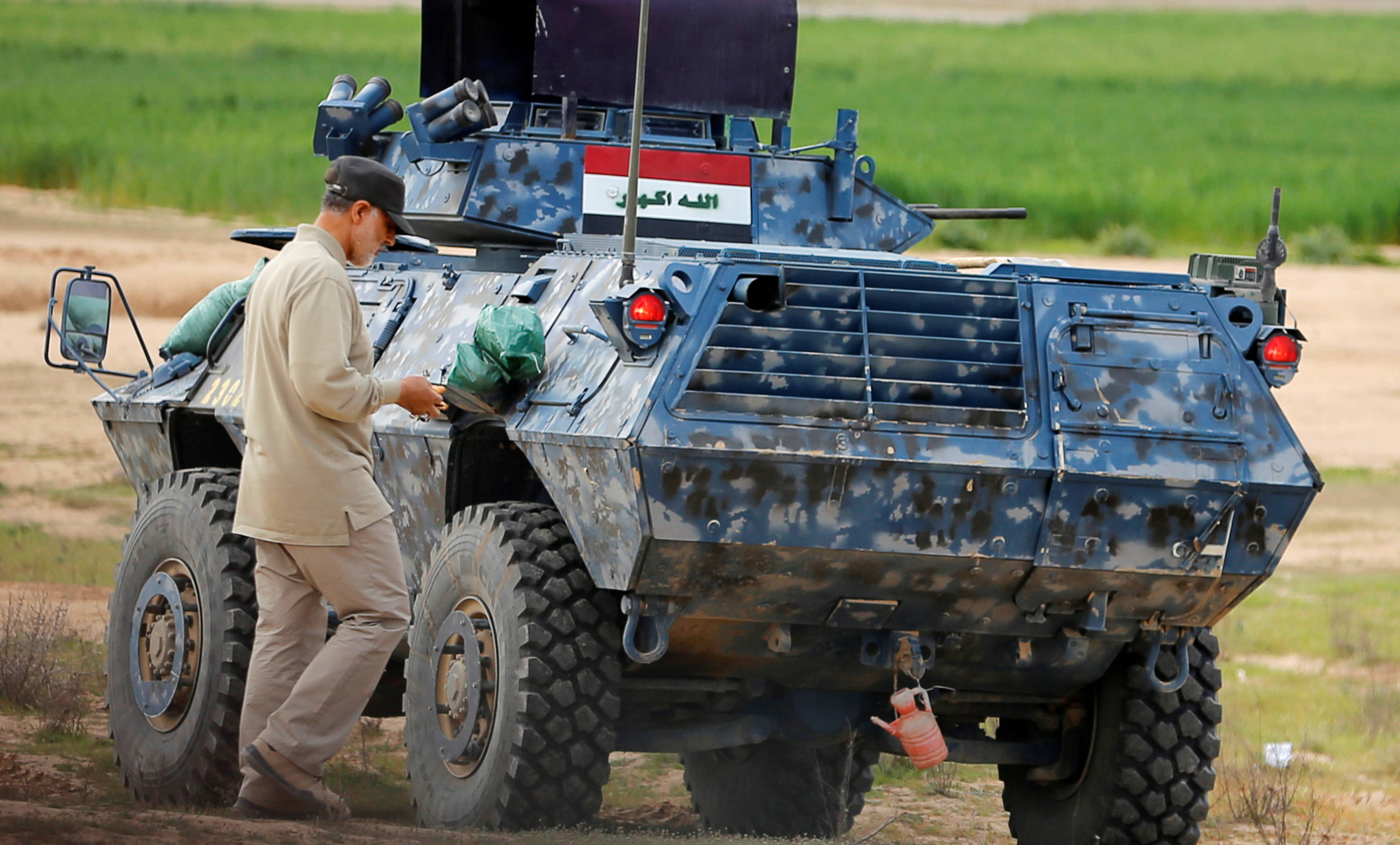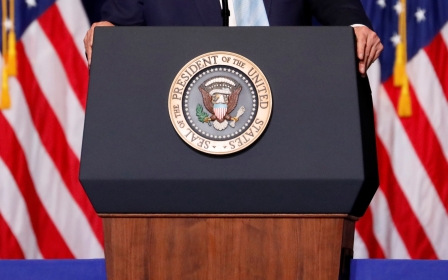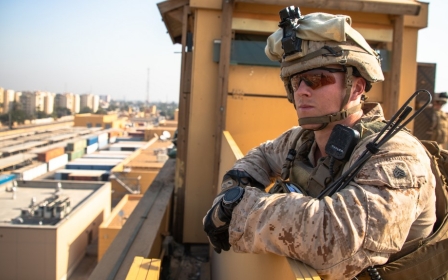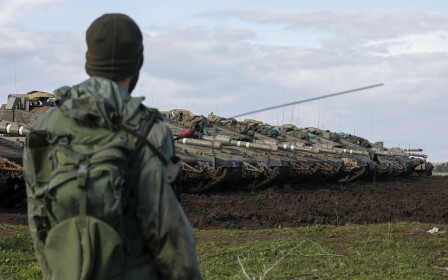Grief, concern in Tehran after Soleimani's death
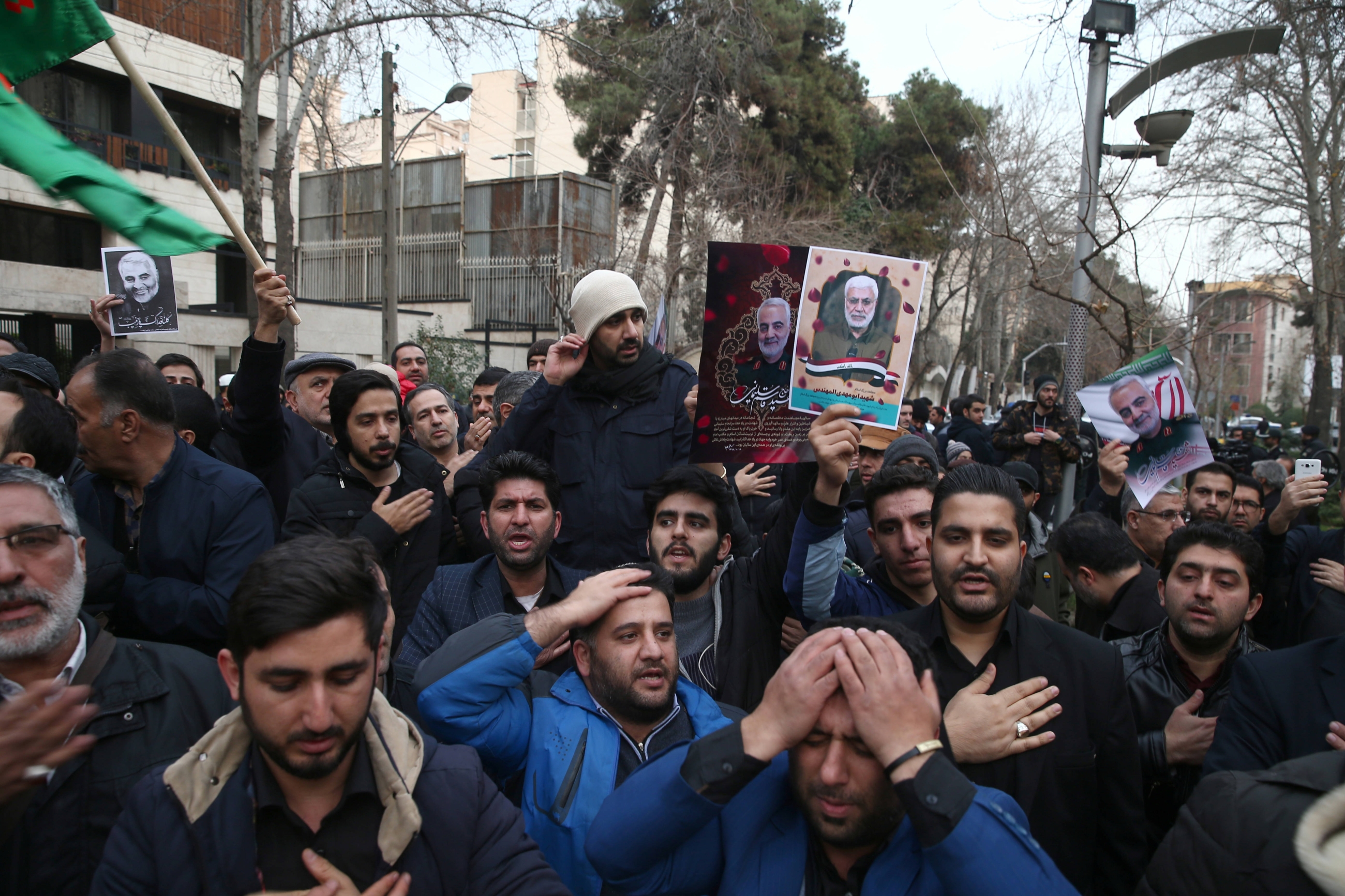
The assassination of General Qassem Soleimani by the United States has shaken people across society in Tehran, as the top commander of the powerful Quds Force was regarded as a national hero among Iranians.
"I saw my 58-year-old mother crying when I woke up today for morning prayers," Mohsen Mazaheri, an English-language tutor, told Middle East Eye.
"My mother doesn't like the whole establishment, but she loved Soleimani owing to his role in preventing [Islamic State] terrorists from entering Iran."
As head of the Quds force, the arm of the Iranian Revolutionary Guard Corps (IRGC) that specialises in extraterritorial operations in several countries, Soleimani had been the architect of much of Iran's expanding influence in recent years. He helped to direct Iranian allies and forces in countries such as Iraq, Syria, Yemen and Lebanon.
Faride Rezai, a history student at the Islamic Azad University, said Iranians have lost the most powerful military man in the country and expressed incredulity that some Iranian expatriates believe the assassination is in Iran's favour.
"I myself loathe the ruling class and the system, but I don't consider today's development in line with Iran's interests."
Soleimani's military experience and national status had led him to be popular among ordinary people.
The general enjoyed a "very favourable" view among 67.7 percent of Iranians, according to a poll conducted by the University of Maryland in 2018.
"I loved Soleimani because he was first an Iranian and a patriot, and I cannot ignore his heroic strategies and actions for the sake of the country," Kourosh Rahmani, a taxi driver, told MEE.
In 2014, under Soleimani's leadership, Iranian and allied forces became a major force in combatting the Islamic State group, as the militant group took over around a third of Iraq. Soleimani's photos on the battlefield started circulating on social media.
Iliya Taleqani, a student of political science, elaborated on the reason behind people's attraction to Soleimani.
"We have two branches in IRGC: the first one never entered political issues, and it was led by Soleimani, and the other one was the one interfering in many affairs including elections," Taleqani said.
For this reason, the student said, many reformist figures, including former president Mohamed Khatami and Hossein Mousavi, an opposition leader who has been under house arrest since 2009, have issued letters of condolences.
Who was Qassem Soleimani?
+ Show - HideIranian Major-General Qassem Soleimani, the shadowy top commander of the Quds Force of the Revolutionary Guards, helped Iran fight proxy wars and increase its foothold across the Middle East.
His assassination in a US air strike on his convoy at Baghdad airport on 3 January marked the end of a man who was celebrated at home and closely watched by the US, Israel and Tehran's regional rival Saudi Arabia.
From working as a teenager to pay off his father’s debts to a swift rise in Tehran’s elite force, Soleimani, 62, was responsible in the end for Iran’s clandestine overseas operations and was often seen on battlefields guiding Iraqi Shia groups in the war against Islamic State.
He was born into an agricultural family in the village of Qanat-e Malek in southeast Iran in 1957. At 13, he moved to the town of Kerman to work in construction and help his father pay back loans, according to a first-person account from Soleimani posted by Defa Press, a site focused on the history of Iran’s eight-year war with Iraq.
When the revolution to oust the shah began in 1978, Soleimani was working for Kerman's municipal water department and organised demonstrations against the monarch. He volunteered for the Revolutionary Guard and, after war with Iraq broke out in 1980, quickly rose through the ranks and went on to battle drug smugglers on the border with Afghanistan.
In 1998, he became chief of the Quds Force, a post in which he helped Iran form regional alliances as it came under pressure from the US sanctions that have devastated its economy. He kept a low profile in this position while he strengthened Iran’s ties with Hezbollah in Lebanon, Syrian President Bashar al-Assad's government and militia groups in Iraq.
At the height of the civil war between Sunni and Shia militants in Iraq in 2007, the US military accused the Quds Force of supplying improvised explosive devices to Shia militants which led to the death of many American soldiers.
As the Americans struggled to stabilise the country and were looking for a broker to help, Soleimani wrote to US General David Petraeus, then commanding US forces in Iraq, in 2008.
"General Petraeus, you should know that I, Qassem Suleimani, control the policy for Iran with respect to Iraq, Lebanon, Gaza and Afghanistan," the commander reportedly wrote in a phone text.
"The ambassador in Baghdad is a Quds Force member. The individual who's going to replace him is a Quds Force member."
Soleimani was arguably even more influential in Syria. Under him, the Quds Force shored up support for Assad when he looked close to defeat in the civil war that has been raging since 2011. His visit to Moscow in the summer of 2015 was the first step in planning for a Russian military intervention that reshaped the Syrian war and forged a new Iranian-Russian alliance in support of Assad.
His activities had made him a repeated target of the US Treasury: Soleimani was sanctioned by the United States for the Quds Force's support for Lebanon's Hezbollah and other armed groups, for his role in Syria’s crackdown against protesters and his alleged involvement in a 2011 plot to assassinate Adel al-Jubeir, then the Saudi ambassador to the United States.
Soleimani’s success in advancing Iran’s agenda had put him in the crosshairs of regional foes Saudi Arabia and Israel even before the US assassination on Friday. In 2017, top Saudi intelligence officials looked into the possibility of using private companies to kill Soleimani, according to the New York Times.
He was killed along with top Iraqi militia commander Abu Mahdi al-Muhandis. Both men were seen as heroes in Iran's fight against its enemies and state television heaped them with praise after their deaths were announced. A Revolutionary Guard spokesman cried during a live broadcast.
'This stupid Trump'
Gholamali Soharabi, a civil engineer, said he believed Soleimani's death was a heavy blow to Iran's integrity and should not be left without a strong response by Tehran.
However, Homayoun Pouya, a student of international relations, voiced his doubts about the possibility of a decisive response by Tehran itself.
"What happened to Soleimani is not a simple issue, but right now Iran is under too much economic pressure and doesn't want to start a war," he said.
"That's why I don't think it would itself commit an attack on US targets across the region. Instead, its proxy militia would retaliate."
'I knew this stupid Trump would one day draw us into a war'
- Masoud Ghaffarmanesh, grocery owner
In 2018, US President Donald Trump withdrew from the landmark nuclear deal between Tehran and major powers, and reimposed crippling economic sanctions on Iran.
Others in Tehran feel wary about a quick and impulsive response from Tehran, preferring the Islamic Republic to remain calm and calculated.
"I'm sad about what has happened, but I prefer that Iran does not respond militarily. Instead, I want them to behave like a politician without attention to emotions," Mahsa Ahmadian, who works for a mobile application, told MEE.
Masoud Ghaffarmanesh, a grocery owner in Tehran, expressed his anger at Trump and blamed him for a potential war breaking out.
"The first thing I sensed when I heard the news was the closeness of war. I knew this stupid Trump would one day draw us into a war," Ghaffarmanesh.
"I can't understand based on what understanding and conclusion had Trump decided to kill Iran's top military commander in Iraq, when it's crystal clear that such a move has the potential to bring turmoil to the region."
Since the news of the killing emerged, the Iranian rial has fallen in value. While one dollar was trading for around 130,300 rial on Thursday, its value on Saturday had depreciated to around 130,900 rial against the dollar.
Saeed Mardomi, a money changer in Tehran, told MEE that he thinks "the dollar's value will increasingly surge against the rial, for at least two weeks".
“I guess this is due to the great danger of a war looming and people's anxiety over the fate of the country."
'We are like chess players'
A senior adviser to President Hassan Rouhani hinted on his Telegram channel that US positions would be indirectly hit by Iran through Tehran's regional proxies.
"Trump... has gambled on his next presidential term by leaving the negotiations [table] and following his regional and domestic warmonger advisers," Hesam Ashena said.
'We are like chess players and consider the consequences before any move'
- Hossein Kanani-Moghaddam, former IRCG commander
"Trump [surely] knows well that a gambler sometimes loses [whatever] he has."
On Saturday, senior IRGC commander Gholamli Abuhamzeh said Iran will punish Americans wherever they are within reach, adding that there are some 35 US targets in the region that have long been identified by Tehran.
Fereidoun Majlesi, a former Iranian diplomat in US before 1979 revolution, told MEE that while he believes that Iran will respond to the US strike, it remains unclear when and how the attack will take place but "there is no need [for that] to happen immediately".
"Trump wanted to get away from his domestic problems, including the impeachment issue, and he will seek to take advantage of this assassination in the election," Majledi said in reference to the US presidential elections scheduled to be held this November.
Last month, the US House of Representatives passed two articles of impeachment - formal charges - accusing Trump of abuse of power and obstructing Congress.
Former IRCG commander Hossein Kanani-Moghaddam said Tehran will definitely exact a hard revenge from the US, but, echoing Ashena, he added that Iran might not retaliate itself as it is not seeking to start a war.
"The Supreme Leader has also declared that we don't want war, but he has also emphasised on the point that the period of 'hit and run is over," Kanani-Moghaddam told MEE.
"We won't make a decision based on emotions. Unlike Trump, who acts stupidly, we are like chess players and consider the consequences before any move."
Middle East Eye delivers independent and unrivalled coverage and analysis of the Middle East, North Africa and beyond. To learn more about republishing this content and the associated fees, please fill out this form. More about MEE can be found here.


